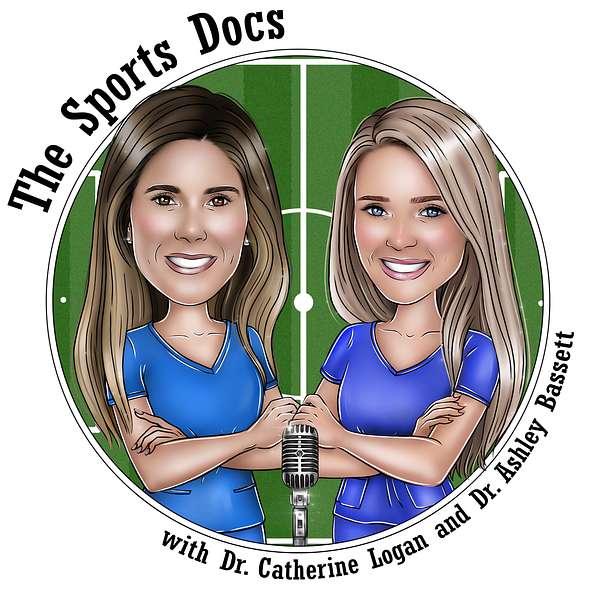
The Sports Docs Podcast
Sports medicine is a constantly evolving field, with hundreds of new articles published each month on the topic. This ever-growing wealth of information can make it challenging to stay updated on the newest approaches and techniques, and to know which data should actually change your practice. Join orthopedic surgeons, Dr. Catherine Logan and Dr. Ashley Bassett, as they chat about the most recent developments in sports medicine and dissect through all the noise.
On each episode of The Sports Docs podcast, the hosts will tackle a specific injury – from ACL tears to shoulder instability – and review the top research from various high-impact journals that month, including The American Journal of Sports Medicine, Arthroscopy: The Journal of Arthroscopic and Related Surgery, Sports Health, Journal of Shoulder and Elbow Surgeons, and more. The Sports Docs will also be joined by experts in the field of sports medicine – orthopedic surgeons, nonoperative sports medicine specialists, athletes, physical therapists, athletic trainers and others – to provide a fresh and well-rounded perspective based on their unique experiences.
The Sports Docs – Dr. Logan & Dr. Bassett – are friends & former co-residents from the Harvard Combined Orthopaedic Residency Program, who went onto esteemed sports medicine fellowships at The Steadman Clinic and The Rothman Institute, respectively. Dr. Logan practices in Denver, CO, and serves as Team Physician for Men's USA Lacrosse & as a Team Physician for U.S. Ski & Snowboard. Dr. Bassett is the director of the Women’s Sports Medicine Center at the Orthopedic Institute of New Jersey and practices across northern NJ, primarily in Morris and Sussex Counties.
Together, they will bring monthly conversations on how to care for athletes of all ages and levels of play, with a healthy mix of cutting-edge science and real-world application.
The Sports Docs Podcast
4. Dr. Mark Price: Shoulder Instability in Athletes - Part II
On today’s episode we’re continuing our discussion on shoulder instability with Dr. Mark Price, Orthopaedic Surgeon at Massachusetts General Hospital and Head Team Physician for the New England Patriots. We have 5 great articles which we discuss over two episodes that really contribute well this conversation on how to best manage shoulder instability in athletes both in-season and post-season.
We’re very honored to have Dr. Mark Price join our discussion today. Dr. Price specializes in sports medicine, knee and shoulder surgery. He is an attending surgeon at Massachusetts General Hospital and Assistant Professor of Orthopaedic Surgery at Harvard Medical School. Dr. Price earned his MD from Harvard Medical School and PhD in Medical Physics from MIT. He completed the Harvard Combined Orthopaedic Residency Program, where Catherine and I both attended as well, and then went on to complete a fellowship in sports medicine and shoulder reconstructive surgery at Mass General. Dr. Price is Head Team Physician and Medical Director for the New England Patriots and a Team Physician for the Boston Red Sox. He is a Captain in the US Navy Reserves and has served in combat operations in Afghanistan, where he was awarded the Bronze Star Medal for meritorious service.
We begin with Dr. Hettrich of Brigham and Women’s Hospital who recently investigated the question “Are there racial differences between patients undergoing surgery for shoulder instability?” We’ll dive further into this topic and chat about how this impacts resident and fellow education.
We will follow these articles up with a discussion on the surgical management of shoulder instability by reviewing two articles from the March issue of Arthroscopy. The first is a prospective randomized controlled trial titled Arthroscopic Bankart Repair With and Without Curettage of the Glenoid Edge. Desai and his team concluded that curettage of the glenoid edge reduced the incidence of postoperative recurrence of instability likely relating to improved healing of the capsulolabrum repair. Avramidis and colleagues contributed their cases on the management of recurrent anterior shoulder instability by All-Arthroscopic Modified Eden-Hybinette Procedure Using Iliac Crest Autograft and Double-Pair Button Fixation System.